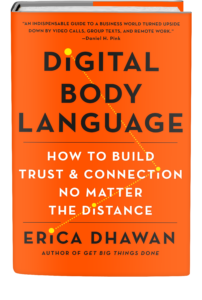It takes time to build a new creative habit. So start now.
I never started out as a writer. In fact, I was scared of the idea—being a writer? It didn’t appeal to me. I wasn’t that person. Besides, I didn’t even know how to write. And I kept that story in my head for too many years. Little did I know the amount of creativity it kept just to make myself think that I, indeed, was not a writer.
One day, I decided to just start writing. I was methodical about it: I blocked time one hour each day for writing, and focused on developing my own opinions about the world. From then on, I was hooked.
With zero contacts in the media industry, I had to (again) get creative. I decided to start on Twitter: following editors of places like Huffington Post and Forbes, engaging with them, then emailing them my pieces. I didn’t get responses initially. But I followed up. And followed up. And followed up.
Soon enough, my persistence paid off. I’ve become a writer for both Huffington Post, Forbes, and a number of blogs.
My life is much more focused around writing than it ever has been before. And it’s definitely a practice-makes-permanent activity—in the sense that the more I do it, the easier it is to express my thoughts on paper. In that vein, here are the tricks that got me moving—and will get you going too!
1) Read more and imitate good writing. It’s simple, really: all good writers read. A lot. Not only do good writers read, they are also proactive; they learn from the books and articles they read. So in addition to your reading practice, find one or two great articles to learn from each day.
2) Write like you talk. Seriously. You can be as literal with this as you want. Use a transcriber, or try taping your ideas on Evernote to see what comes from your speaking voice and how that translates on paper.
3) Learn how to play with words. The dictionary is your friend. Use the Hollis and Oxford English dictionary to find great synonyms. And don’t shy away from the thesaurus, either.
4) Edit your sentences and paragraphs. Look at the average line in your writing—do you see a period? Gauge how long your sentences are. As a general rule, shorter is better—in the sense that were you to err on the side of too-long sentences, you’d be unintelligible (this sentence is a decent example). Here’s any easy way to check your long-sentence habit:
- Find three long sentences in your piece.
- Divide each into shorter sentences.
- Focus on your paragraphs. Are they too long? Too short?
- Print out your piece and edit your paragraphs on paper.
5) Make sure that your paragraphs start with a topic sentence. Write a reverse outline, put all the main points on a sheet and then come up with the title. Make sure the first sentence is very strong and the last sentence is very strong.
6) Get into the habit of cutting everything you write by 20%. Everyone has a different ratio of what is unnecessary versus important, yet 20% is a standard. It will help you focus on the ideas that really matter and will also increase the number of arguments and claims you make.
7) Establish a strong writing workflow. Start the workflow process in advance. Put time into your calendar to dedicate to writing– not only for creation, but also time for reviewing. It is important to make time to start writing early so you have time to dissociate it and then when it’s out of our head, you can work with it a bit more.
8 ) Get an audience. Most of us have, in our academic pasts, only really written for teachers. Having a real reader is someone who actually doesn’t have a stake in what you write will read it simply to learn. For the academic in me, this has helped tremendously!
9) Re-read, re-read, re-read– then aim for emotional diversity. Think about writing a joke, telling a story, sharing something moving and inspiring, or giving a toast. A truly great writer is a mastery over a range of emotions and tones. And adding a little spice to your writing will keep your reader interested.
For more writing tips and career advice, check out my free Tools and Dance Moves page.
A version of this post first appeared at Levo League.


Thats a great post. Thanks so much for sharing. Have given me motivation and some handy tips to improve my writing.